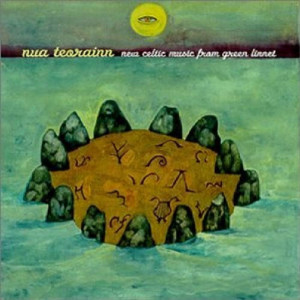 Patrick O’Donnell wrote this review.
Patrick O’Donnell wrote this review.
We’ve been taught since birth that change is constant. Each day is followed by a new day, each year by a new year, each bringing something just a little different than before. We’ve also been taught that there are some things we can count on throughout the changing world: Each new day brings a sunrise and a sunset, each new year brings four seasons. And if we stop to marvel at the sunrises and sunsets, take time to revel in each season, we will invariably find something to rejoice about. So it is with Celtic music. Each band brings new sounds, each year brings new bands.
And through it all, we can always count on Green Linnet to assemble some of the finest groups and most wonderful music in the genre, thanks in no small part to founder Wendy Newton’s willingness to stop and marvel at the musicians and revel in their music. As for finding something to rejoice about, take your pick of any of the artists featured on Nua Teorainn, one of the label’s latest releases. Each is extraordinary.
The 15 full-length tracks on this sampler CD give a taste of each artist that leaves you hungering for more. From the commanding voice of rising star Niamh Parsons on the lovely traditional ballad “Fear a Bhata” to the mahogany-mellowed sound of veterans Kila on their avante garde “Tine Lasta,” this CD showcases some of Green Linnet’s best and brightest.
Kicking things off with a jolt is Liz Carroll’s set of reels, “Sevens/Michael Kennedy’s/The Cup of Tea.” Her playing, a mix of energy and soulful passion, gains support from a striking ability to craft music that’s as interesting as it is enjoyable.
Keeping a good thing in motion, Scotland’s Old Blind Dogs follow up with “Forfar Sodger,” one piece of fine music separated into two parts. The Dogs, in tune with their contemporaries, make good use of world instrumentation such as djembe and conga, and even blend some harmonica with the whistles, fiddle and rhythm guitar. The first part, “Trip to Skye,” has a decidedly cosmopolitan introduction, with a soft harmonica adding just a dash of staccato zest to the acoustic guitar while the focus is on the congas and chromatic whistles. The second part, “The Bridie,” is separated by barely a heartbeat from the first and features a traditional, reel-like sound, focusing more on the fast-moving whistles and fiddle and less on the percussion.
Lunasa, always a welcome band, chimes in with “Goodbye Miss Goodavich/Rosie’s Reel,” proving they are the masters of a playing style that relies more on understatement than flourish to paint a soundscape of great beauty and depth.
Though there are no low points, there are a few slow points on this collection. Martin Hayes & Dennis Cahill’s “Martin Rochford’s/Green Gowned Lass” is a bit too unhurried for my tastes; and, although Kevin Burke’s slip-jig “The Butterfly” illustrates his mastery of a fiddle, I think it is too ponderous of a selection to be an accurate showcase for his ability. Fortunately, these slow points are few and far between. Besides, this is supposed to be a collection, not a concept album. Diversity is the key.
“This Strange Place,” Wolfstone’s contribution, is a rich, rolling example of this band’s innovative sound. One of a handful of bands to successfully mix electric guitars with traditional instruments such as pipes, Wolfstone has been evolving for more than a decade, creating a sound that matures a little more with each album.
One of my favorite works on Nua Teorainn is June Tabor’s interpretation of Richard Thompson’s haunting “Pharoah.” The mix of big-band brassy jazz and skirling woodwinds compliments Tabor’s darkly melodic vocals, which undulate and alternate, at one point hardly a hiss, the next bordering on a barely stifled shout.
Wrapping things up with a flourish, Celtic Fiddle Festival performs two outstanding reels, “Farewell to Ireland/Foxhunter’s Reel.” What better way to end a collection of outstanding talent than with a group that, in itself, is a collection of the same. Kevin Burke, Johnny Cunningham and Christian Lemaitre blend their abilities into a single seamless sound, and three scalding fiddles sound like one. It’s sheer bliss to listen.
Thank goodness for Green Linnet, and thank God for Wendy Newton. Without them, America would have missed out on an invaluable source of good music, and we would have been that much poorer of spirit for our loss.
(Green Linnet, 2000)
